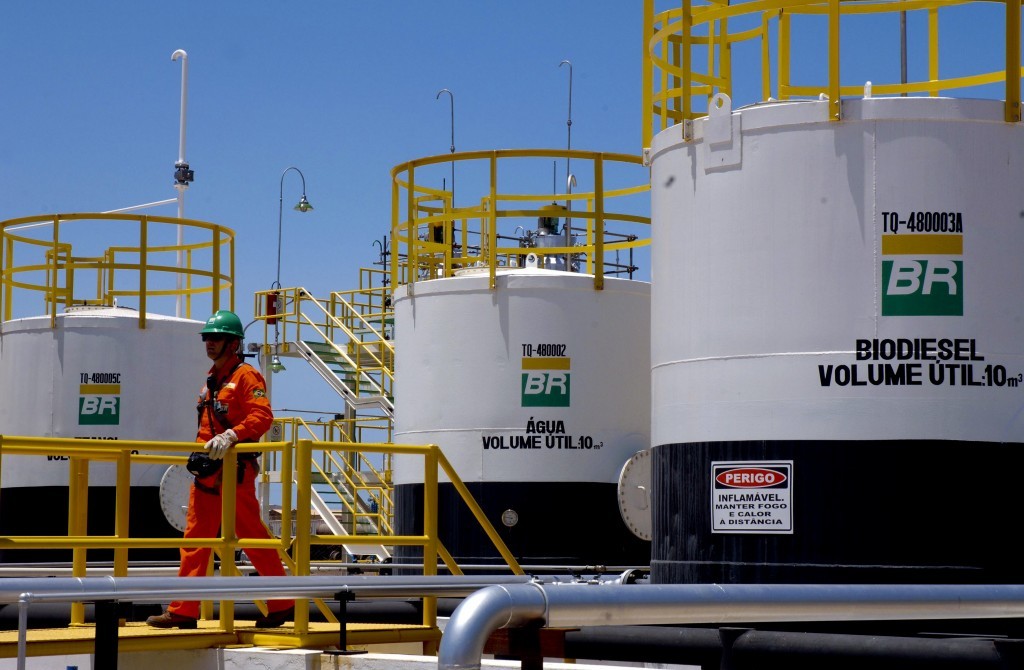
What used to be corporate Brazil’s top job as chief executive officer is now a tough gig to sell.
The likely impeachment of President Dilma Rousseff has raised expectations for a leadership change at state-controlled Petrobras. The president has traditionally chosen the CEOs at banks and companies that are controlled by the government, even if the task is theoretically up to the board of directors.
Petroleo Brasileiro SA, with more than 280,000 staff and contracted employees and the country’s biggest corporate investment program, normally has one of the most disputed CEO slots. Rousseff’s expected successor, Vice President Michel Temer, has said he wants to fill the post, even if not immediately.
It won’t be easy in 2016 to find a strong industry candidate. The offshore oil producer is sitting on the largest debt load in the industry. Prior CEOs have had assets frozen and are defending themselves in a class action suit in the U.S. Other former executives went to jail, and some prominent investors expect the government will eventually bail out the beleaguered producer. Leading figures in Brazil’s oil industry, whose names have appeared as potential candidates in the local media, have publicly shown no interest.
“No chance, zero,” Jorge Camargo, the former head of Petrobras’s international division who currently leads the Brazilian Petroleum Institute, an influential industry lobby, told Bloomberg in an interview. “I’ve finished my time at Petrobras.”
Aldemir Bendine, the current CEO who made his career at a state-controlled Banco do Brasil SA and had no previous experience with oil, took over in early 2015 with the immediate goal of getting the company’s 2014 delayed financial report approved by auditors while the magnitude of the graft scandal was still unfolding. Bendine unveiled the biggest losses in Petrobras’ history, is reversing an international expansion under an asset disposal program, and is slashing an additional 12,000 posts under his second dismissal program – all in an industry that has been cratering for more than two years.
Camargo’s predecessor at the IBP, Joao Carlos de Luca, said he isn’t interested either. De Luca is the chairman of Barra Energia Petroleo e Gas, one of Petrobras’ deep-water partners. He was previously the director of exploration and production at Petrobras, and was the president for Repsol SA’s Brazil unit.
Rodolfo Landim, the CEO of small producer Ouro Preto Oleo e Gas SA, turned his mobile phone off the last time the CEO seat was vacant in 2015 to halt a flood of inquiries from reporters. He wasn’t interested then and hasn’t changed his mind this time around. “I’m happy where I am,” he said.
Adriano Pires, an analyst who heads Rio-based energy consultancy CBIE, was less resistant.
“My name has been circulating a lot, but I could only consider the case if there were an invitation, and there hasn’t been one,” he said. “This is all speculation.”
Temer started putting together his potential cabinet last month. He told O Globo on May 4 that he had two well-recognized executives in mind for the Petrobras slot, without naming them. The local securities regulator issued an statement May 6 to clarify that it is corporate boards only who elect CEOs, even at state-controlled companies.
Last year Petrobras shareholders elected the first board that doesn’t include government ministers in an effort to halt political interference in the company. In the past, top managers at the oil producer were chosen by political parties, allowing for the emergence of a massive pay-to-play scheme known as Carwash where money from contracts went to corrupt executives and their political sponsors, according to investigators.
Recent efforts to hire a president for Petrobras’ fuel distribution unit underscore the difficulties. Petrobras started recruiting for the job seven months ago, and has yet to name a replacement. A consultancy firm identified 90 potential candidates, but finalists declined the job with a 1.5-million-real ($430,000) annual salary, and Petrobras is preparing to start a new search, Folha de S.Paulo reported Apr. 29. Petrobras declined to comment.
Former Petrobras CEOs Sergio Gabrielli and Maria das Gracas Foster, who was replaced by Bendine, both had personal assets including private apartments temporarily frozen as a result of investigations into the company.
“It’s a tough job to replace,” Alessandra Simoes, an oil industry head hunter, said in an interview in Houston. “Bendine is the Apocalypse messenger. He was brought in to give bad news. I wouldn’t take him out of there until all the negative news flow is finished.”
Recommended for you
